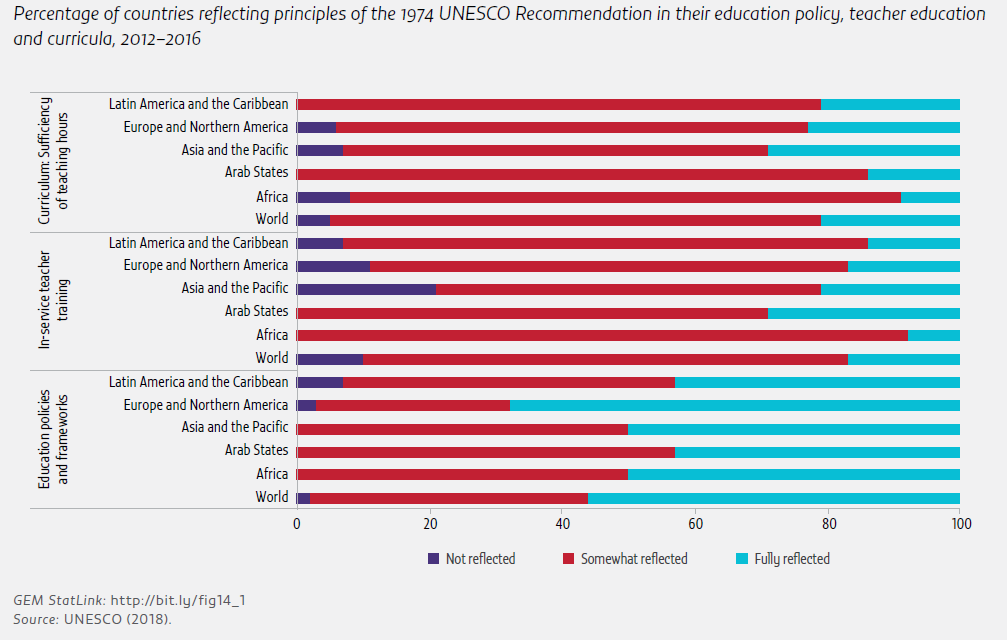Target 4.7: Sustainable development and global citizenship
By 2030, ensure that all learners acquire the knowledge and skills needed to promote sustainable development, including, among others, through education for sustainable development and sustainable lifestyles, human rights, gender equality, promotion of a culture of peace and non-violence, global citizenship and appreciation of cultural diversity and of culture’s contribution to sustainable development
CREDIT: ESB Professional/Shutterstock.com. A young boy holding a globe.
Reporting on the global indicator is based on 83 countries that took part in the sixth consultation on implementation of the 1974 UNESCO Recommendation concerning Education for International Understanding, Co-operation and Peace Education relating to Human Rights and Fundamental Freedoms. Over 80% of the countries reported including the recommendation’s guiding principles in student assessment, and almost all reported including them in curricula. However, only 17% of the countries fully reflected the principles in in-service teacher education programmes (Figure 13).
Figure 13: Only 17% of countries fully reflect human rights and fundamental freedom principles in in-service teacher education

The IEA International Civic and Citizenship Study 2016 analysed grade 8 students’ knowledge, understanding, attitudes, perceptions and activities in 24 mostly high income countries. Some 35% of students scored at the highest of four levels, demonstrating the ability to make connections between the processes of social and political organization and the legal and institutional mechanisms controlling them, while 13% scored at the lowest level or below.
Eleven countries significantly improved scores between the 2009 and 2016 survey rounds, and none showed significant declines. Participants’ endorsement of equal rights and positive attitudes towards ethnic/racial groups also improved. Females, students with more interest in civics and political matters and those with higher levels of civic knowledge held more positive attitudes. Individual variables most consistently associated with positive attitudes related to perceptions of the quality of school processes, such as student–teacher relations, civics learning and openness in schools and classroom discussions.
Previous year’s Target 4.7

